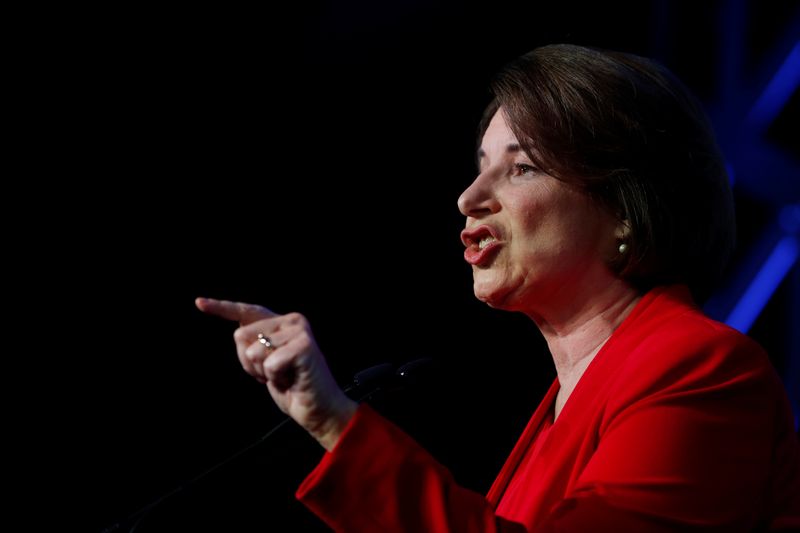WASHINGTON (Reuters) – Two Democratic U.S. senators said on Tuesday they were pushing for financial assistance for nonprofits struggling to provide food, shelter and other aid to Americans coping with the COVID-19 pandemic, while also helping those groups expand their payrolls at a time of soaring unemployment.
Senators Amy Klobuchar and Brian Schatz are preparing a yet-to-be-introduced bill giving the Treasury Department authority to distribute block grants to more than 1,000 state and local governments, which would in turn dispatch those grants to nonprofits.
While the aid intends to help nonprofits with more than 500 employees, which were largely left out of previous coronavirus aid efforts, the Democrats’ bill would allow grants for such organizations of any size.
“We need to help charitable nonprofits keep their doors open, scale their invaluable services and provide opportunities for unemployed men and women,” Klobuchar said in an emailed statement to Reuters.
Congress has already allocated almost $3 trillion to salve the heavy economic hit of a pandemic that has killed more than 68,000 Americans and thrown more than 30 million out of work.
There is at least one bipartisan bill to help large nonprofits in the House of Representatives, but Democrats pushing for the program will face resistance from Republicans who say their priority is businesses that want new protections from liability lawsuits related to the pandemic.
The goal of the Klobuchar-Schatz plan is to prevent nonprofits, which are facing declining donations just as demand for their services is skyrocketing, from having to lay off more of their own workers. The grants would cover wages of up to $50,000 for each nonprofit employee and also help unemployed people match up with nonprofits in need of more workers.
Those organizations provide food and housing aid, counseling, disability assistance and other services in the United States and abroad. They largely have been left out of coronavirus-response measures including a massive loan program aimed at small businesses.
With housing assistance needs rising, Habitat for Humanity nonetheless has had to lay off 10% of its U.S. paid workforce of over 600.
“We’ve been through all kinds of natural and man-made disasters throughout the world, but we’ve never had our operations all hit at the same time,” said Jonathan Reckford, chief executive of Habitat for Humanity International.
Because governments have required closings of non-essential businesses, Habitat for Humanity in the United States has had to suspend revenue-producing operations at its thrift stores.
Kevin Washington, head of YMCA of the USA, said that if its membership facilities remained closed throughout the summer, “we could see lost revenue as high as $2.5 billion.”
Washington added that some YMCA facilities had laid off up to 95% of their staffs.
(Reporting by Richard Cowan; Editing by Scott Malone, Steve Orlofsky and Peter Cooney)






















